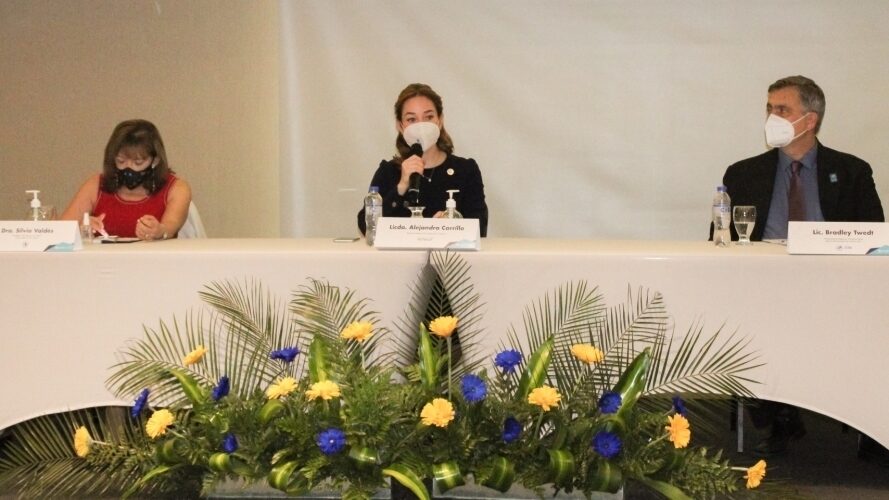Guatemalan Institute Supports Over 4,600 Survivors With New Trauma-Informed Model
Violence Against Women & Children
March 16, 2021 - the Guatemalan Institute for Victim Care and Assistance (IAV, acronym for its Spanish name Instituto De La Victima) celebrated six months of restoring survivors of violence through its Model for Holistic Assistance for Victims – a trauma-informed model co-created by the government of Guatemala and IJM. In the first six months of the model's implementation, the IAV supported 4,647 survivors of violence, providing free legal counseling and representation, psychological support, and securing 117 convictions.
In addition to providing holistic assistance for victims, the IAV has the mandate to review, approve and advise on national policies that support victims, contributing to the prevention of crime and reduction of re-traumatization.
In 2020, 37% of nationwide cases that entered the Guatemalan Public Justice System were committed against women and children. The percentage is higher in the IAV's caseload, where approximately 60% of the cases are violence against women and children – including sexual and domestic violence.
“Historically, victims have been invisible within public justice systems, even when it is they that serve as the starting point for the penal system. However, there is a shift of focus with the incorporations of norms, processes and policies that promote having the victim of a crime at the center of the process” said Alejandra Carrillo, General Director of the IAV. “What’s most important is that the victim is central to what we do,” she added.
Thirteen members of Mi Historia Importa (My Story Matters), a survivor-led movement supported by IJM, used their own experiences within the public justice system to inform the strategy and creation of the ground-breaking victim assistance model. “For me, having participated… has been and continues to be important. Knowing that it is going to serve many people — children, women, and adolescents — is important,” explained Scarlett, one of the survivor leaders, adding that “to have all the services in one place helps the victim feel more at home and feel like other people will support them with legal matters, and will help them physically and psychologically, beyond just listening to their stories.”
Each staff member, from the receptionist to the multidisciplinary team of lawyers, psychologists, social workers, doctors and nurses, was trained by IJM and is required to comply with protocols regarding trauma-informed care. “IJM was the first institution to take interest in the IAV, to believe in the IAV, and to be certain that the model could be replicated not just in Central America, but throughout Latin America,” highlighted Carrillo.
“For us [fighting against violence] is not a political, philosophical or an abstract issue, this is a flesh-and-bones need,” said Brad Twedt, IJM’s Regional Vice President for the Northern Triangle of Central America. “I thank the IAV for allowing us to be part of this big challenge. I want to reiterate IJM’s support as an ally to add to your efforts ensuring access to justice, dignifying services, and the restoration of victims; that contributes to the reduction of impunity and the protection of woman and children.”